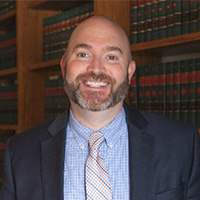Downsville Juvenile Law Lawyer, New York
Sponsored Law Firm
-
 x
x

Click For More Info:
-
Cohen & Bernstein, L.L.C.
1360 Clifton Ave #309 Clifton, NJ 07012» view mapCriminal Defense We’re In this Together!
We work hand in hand with our clients to ensure all of your questions are answered and progress through your legal issue is seamless.
800-978-7341
Not enough matches for Downsville Juvenile Law lawyer.
Below are all Downsville Criminal lawyers.
Tracy A Donovan Laughlin
✓ VERIFIEDTracy Donovan Laughlin is a practicing lawyer serving Otsego County in Cherry Valley, Cooperstown, and Oneonta, New York as well as the surrounding co... (more)
Scott A Russell
✓ VERIFIEDWith experience serving the public as an Assistant District Attorney, prosecuting minor traffic infractions and serious felony offenses, as public def... (more)
FREE CONSULTATION
CONTACT Lindsay Bernstein Clifton, NJ
Lindsay Bernstein Clifton, NJ Practice AreasExpertise
Practice AreasExpertise


